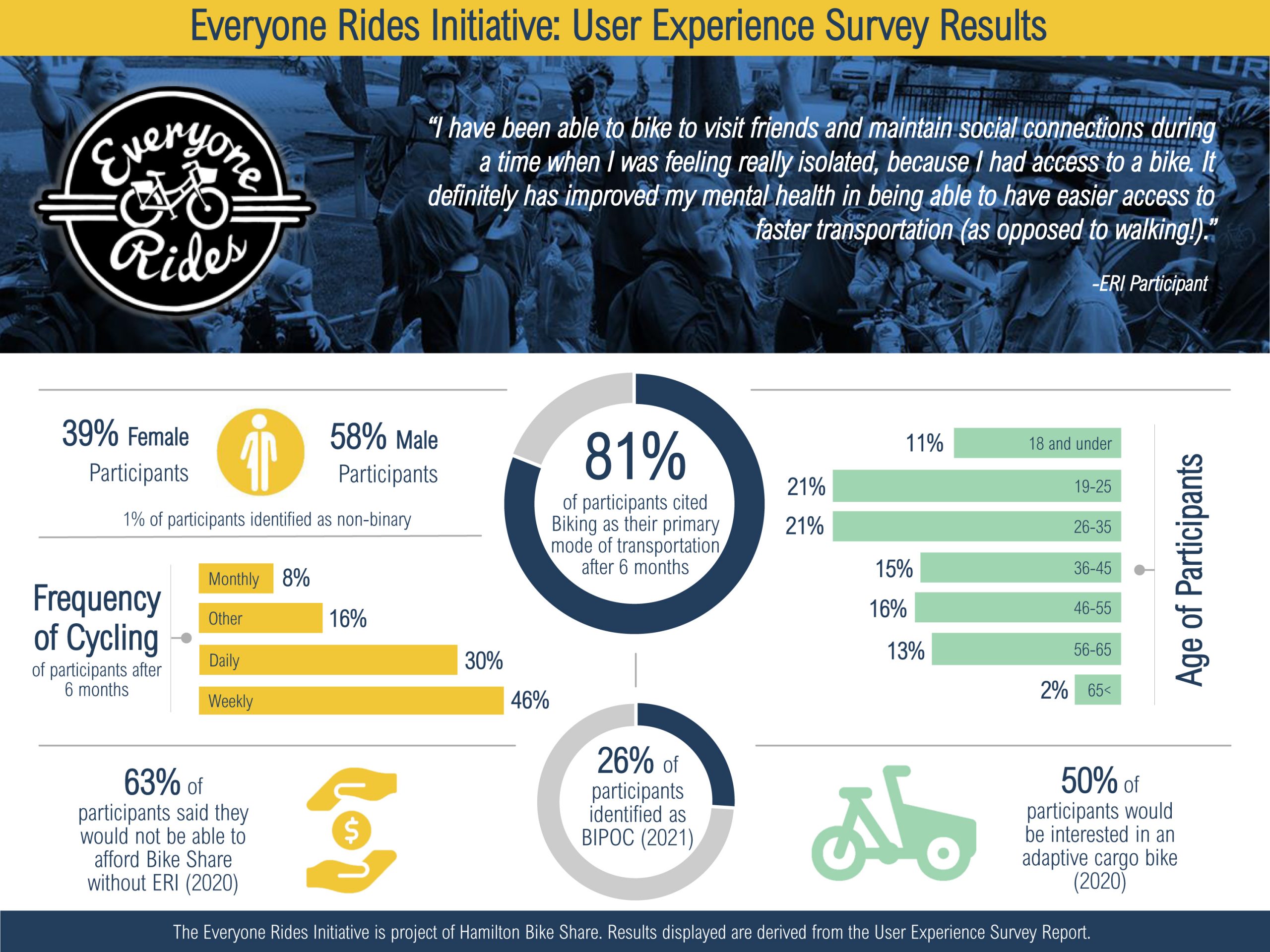Expanding Access To Bike Share
One of the challenges of the Bike Share system, like all forms of public transportation, is encouraging and ensuring that a broad diversity of people, ages, genders, cultural and racial backgrounds, as well as physical abilities and incomes can access this public resource.
In that vein, the Everyone Rides Initiative (ERI) is dedicated to making bike share more equitable by removing the barriers that prevent people from accessing bikes, which can include cost, access, language, and education.
To measure the program’s success, ERI conducts annual rider surveys to better understand who is using the program, what they gain from it, and what can be improved. Civicplan worked with ERI to analyze and report back on three years’ worth of survey data from the program (2019-2021), the results of which highlight some interesting trends that emphasize the importance of this program.
In terms of ERI riders, there was a relatively balanced spread of ages identified among respondents between the ages of 19 and 55. The majority of riders identified as male (58 per cent), with close to 40 per cent identifying as female. In 2021, 26 per cent of survey respondents identified as Black, Indigenous, or a Person of Colour (BIPOC).
Some of the most promising trends that emerged from the surveys were the changes in riders’ behaviours and perceptions from the introductory survey to the follow up survey, six months later. For example, 81 per cent of respondents indicated that after six months of using ERI, cycling was their primary mode of transportation. Additionally, after six months, 46 per cent of respondents indicated they cycled weekly, while another 30 per cent indicated they cycled daily.
As the study period occurred during the COVID-19 pandemic, ERI riders were asked a series of questions specific to their preferences and uses of Bike Share in light of physical distancing restrictions. The majority of respondents in both 2020 (54 per cent) and 2021 (58 per cent) indicated that their need for Bike Share increased due to the pandemic. Respondents shared that the value of ERI — particularly during the pandemic — supported better mental health, contributed to their physical well-being and ability to renew and maintain social connections, and allowed them to get around the city safely.
While those who currently use ERI demonstrated the importance of Bike Share and access to this public transportation infrastructure, 63 per cent of respondents in 2020 also noted that without the ERI program, they would not be able to continue to use the Bike Share network.
Hamilton Bike Share has become a central part of the public transportation network throughout the city. While there is still more to be done to expand the service to more areas, one important element of the Bike Share system has been the Everyone Rides Initiative, which has allowed a greater diversity of residents to access this means of transportation. Without the support of ERI, this community of committed riders would not be able to continue to use the system that offers them so much in terms of safe mobility, as well as physical and mental health benefits.
This article was originally published in here.


